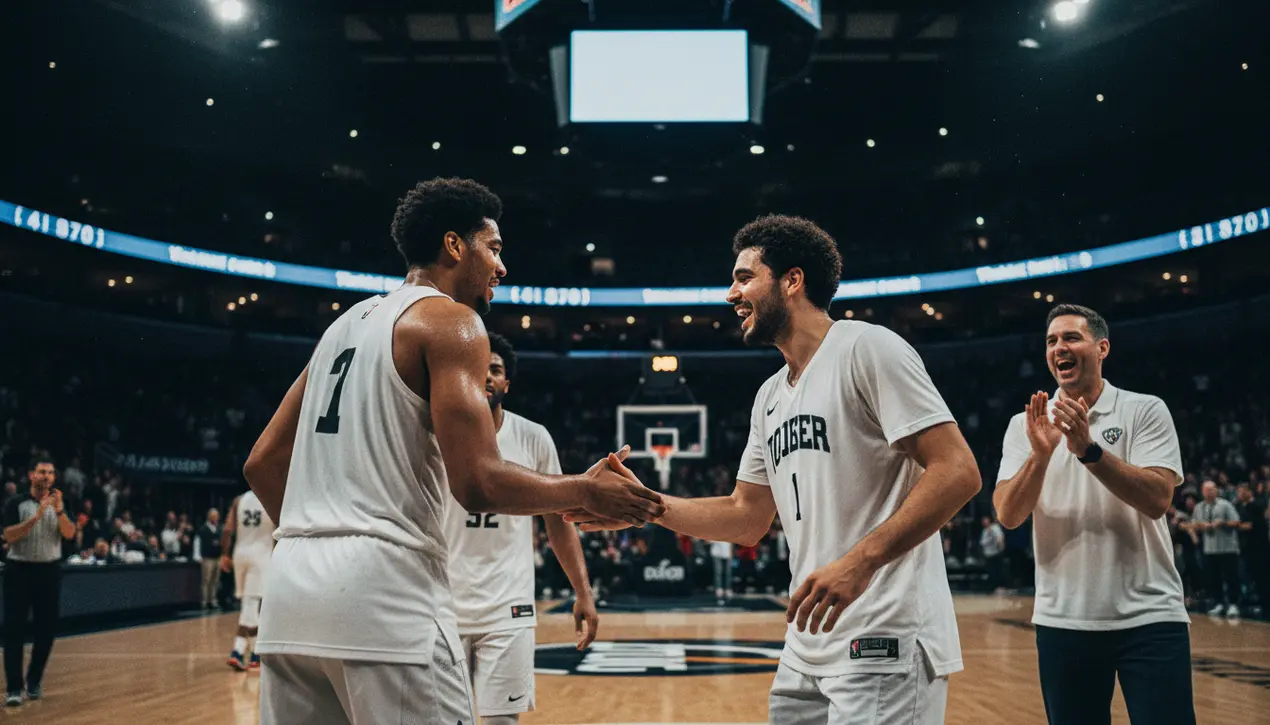
AIenterprise aiAI in Finance and Banking
Even in the age of AI, hire for character over skill
LI
Liam Brooks
6 hours ago7 min read1 comments
Picture this: you're courtside at an NBA game. You're not just watching the scoreboard; you're locked in on how the players move off the ball, how they communicate on a broken play, the genuine dap they give a teammate after a slick assist.That's the real stuff—the intangibles that a stat sheet can't capture. It’s the same in the hiring game today, especially with AI shaking up the entire league.A résumé is like a player's basic stats; it shows you the points and rebounds, but it tells you nothing about their basketball IQ, their resilience in the fourth quarter, or whether they’re a locker room glue guy. Yet, according to a 2024 Microsoft and LinkedIn report, a staggering 71% of employers said they'd pick a candidate fluent in AI over a more experienced one who isn't.It’s like a team drafting solely for a player's three-point percentage while ignoring their defense and chemistry. Sure, technical skills matter—you need guys who can shoot.But in an economy that Goldman Sachs economists are calling a 'jobless growth' period, where hiring lags even as the economy expands, and where PwC found that requirements for AI-exposed roles are shifting 66% faster than in other jobs, what's considered a hot skill today might be completely outdated by the next trade deadline. The playbook is being rewritten in real-time.That’s why the smart GMs—the ones building dynasties—are scouting for character. They’re looking for the Draymond Greens, the players whose value isn’t in a single skill but in their court vision, their defensive intensity, their unselfishness.In a 'job-hugging' economy where people stay put longer, every hire is a franchise-altering decision. You’re not just filling a roster spot; you’re building a culture.And real culture isn’t about hiring a bunch of guys from the same draft class who all think the same. That’s just comfort.Real culture is chemistry—it’s how a team executes in crunch time, how they adapt when the game plan falls apart. This is where the culture interview becomes your pre-draft workout.As an HR exec who’s been in the room for these, I treat it like I’m looking for a point guard to run my offense. I need to be in the room myself, because you can’t feel a player’s energy from a scouting report.I ask the same core questions to every prospect, not for a perfect answer, but to see their process. In an era where ChatGPT can polish a résumé and coach someone through mock interviews, consistency in questioning cuts through the rehearsed performance.You start to see who takes a beat to think, who connects ideas like a no-look pass, who genuinely lights up when talking about their role on the team. And the questions they ask me are just as telling.Are they curious about our offensive system—how we collaborate, how we make adjustments? Or are they just asking about their individual stats and contract? A tough, thoughtful question shows me they’re invested in the whole organization, not just their own highlight reel. I’m not looking for everyone to have the same origin story.Great talent can come from anywhere—it’s like finding a Jokic in Serbia or an Embiid from Cameroon. I’m scouting for the same core traits: curiosity, honesty, self-awareness, and that dogged drive.But how ambition or stability looks in Milwaukee might be totally different from how it looks in Medellín. Recognizing that nuance is how you build a roster that gels across borders.At the end of the day, the X's and O's of technology will keep evolving faster than any playbook. But a player's heart, their character, their will to win—that doesn't have an update cycle.Building a championship team isn't about having the guy who mastered last year's offensive scheme; it's about having the players who can learn the new one, trust each other, and execute when it matters most. Your tech stack will change, but your culture is your legacy.
#hiring
#character
#culture
#AI skills
#job market
#leadership
#featured
Stay Informed. Act Smarter.
Get weekly highlights, major headlines, and expert insights — then put your knowledge to work in our live prediction markets.
Related News
Comments
Loading comments...
© 2025 Outpoll Service LTD. All rights reserved.